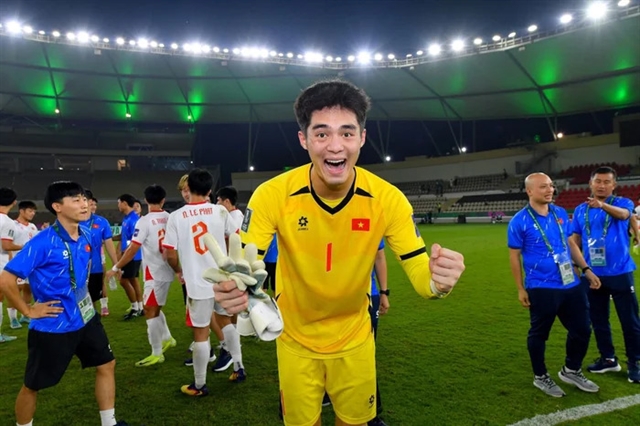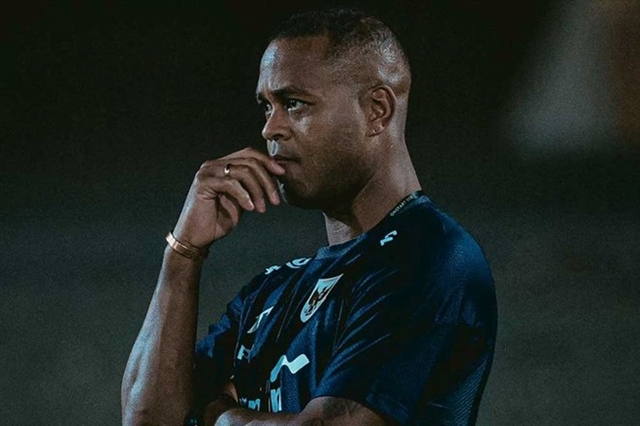 Sports
Sports

 |
| Patrick Kluivert's reign as Indonesia ends as fast as it came, just nine months after his appointment in January 2025. Photo courtesy of the PSSI |
Anh Đức
After a rollercoaster of a World Cup campaign, Indonesia are out of the 2026 World Cup qualifiers. And with that came the end of Patrick Kluivert's nine-month reign as their national team manager.
The era of Kluivert in Indonesia was plagued by questions - from his surprise appointment to his style of play during qualifying and ultimately to his abrupt dismissal.
On January 8, Kluivert signed a two-year contract with the Football Association of Indonesia (PSSI), as the country renewed hopes of reaching its first modern-era World Cup. But by mid-October, after elimination and internal turmoil, the partnership was terminated by mutual agreement.
What went wrong? First, the build-up. Kluivert’s arrival was hailed as the Dutch legend bringing European pedigree to the Garuda. Yet outside of veneer and swagger, questions swirled about whether he deeply understood the domestic football structure, fan expectations and the specific demands of Indonesian football. Local media flagged this mismatch early.
On the pitch, there were moments of promise. Facing Saudi Arabia, Indonesia proudly took the lead and looked dangerous. But compatibility issues emerged: the team created chances but could not convert them; defensive lapses proved costly. A 0-1 home defeat to the Iraq national football team sealed elimination and magnified the flaws. Kluivert admitted the disappointment.
In the end, the decision to part ways was signalled as a mutual agreement, though compensation of up to US$4.8 million looms for the early exit. The brevity of his tenure – just ten months into a contract through 2027 – adds to the impression of mismatch and mistiming.
Still, there are positives. Kluivert oversaw Indonesia’s best World Cup-qualifier era in decades; the team reached the final round for the first time in modern memory. The players showed fight, flashes of a new style, and competitiveness. But as many observers noted, taking steps is one thing; sustaining them is another.
If Indonesia is to make sense of this chapter, three lessons emerge clearly. First, fitting the right coach matters as much as hiring a big name. Style must match culture, structure and the talent pool. Second, institutions behind the coach must align: PSSI, clubs, and youth systems – all must pull in the same direction. The shock appointment of a global name without a fully harmonised infrastructure risks short-term effects, not lasting change. Third, patience is required. The football federation set a World Cup target that many felt was aspirational yet rushed. When the execution falls short, the fallout is swift.
For Indonesian football, the exit of Kluivert should not be framed simply as the failure of one man. Rather, it’s a symptom of a system still searching for coherence. The talent is there; youth programmes are improving; fans pack stadiums. But turning all that into a world-class national team requires continuity and alignment – far more powerful than any headline coach alone.
With Kluivert gone, PSSI must now pivot quickly yet wisely. The next coach must bring not just tactics, but patience, cultural fluency and a genuine developmental plan. The upcoming months are crucial: maintain confidence in the squad, anchor the momentum built, and avoid the temptation to chase headlines again.
This is Indonesia’s chance to do things differently. Big names attract attention; fit and foundation build success. The Garuda’s story doesn’t end here, it evolves. But evolution will mean less drama and more process. If Indonesia is to land a World Cup berth one day, it will not be because of one coach’s sprint, it will be because the whole system has learned to run together. VNS